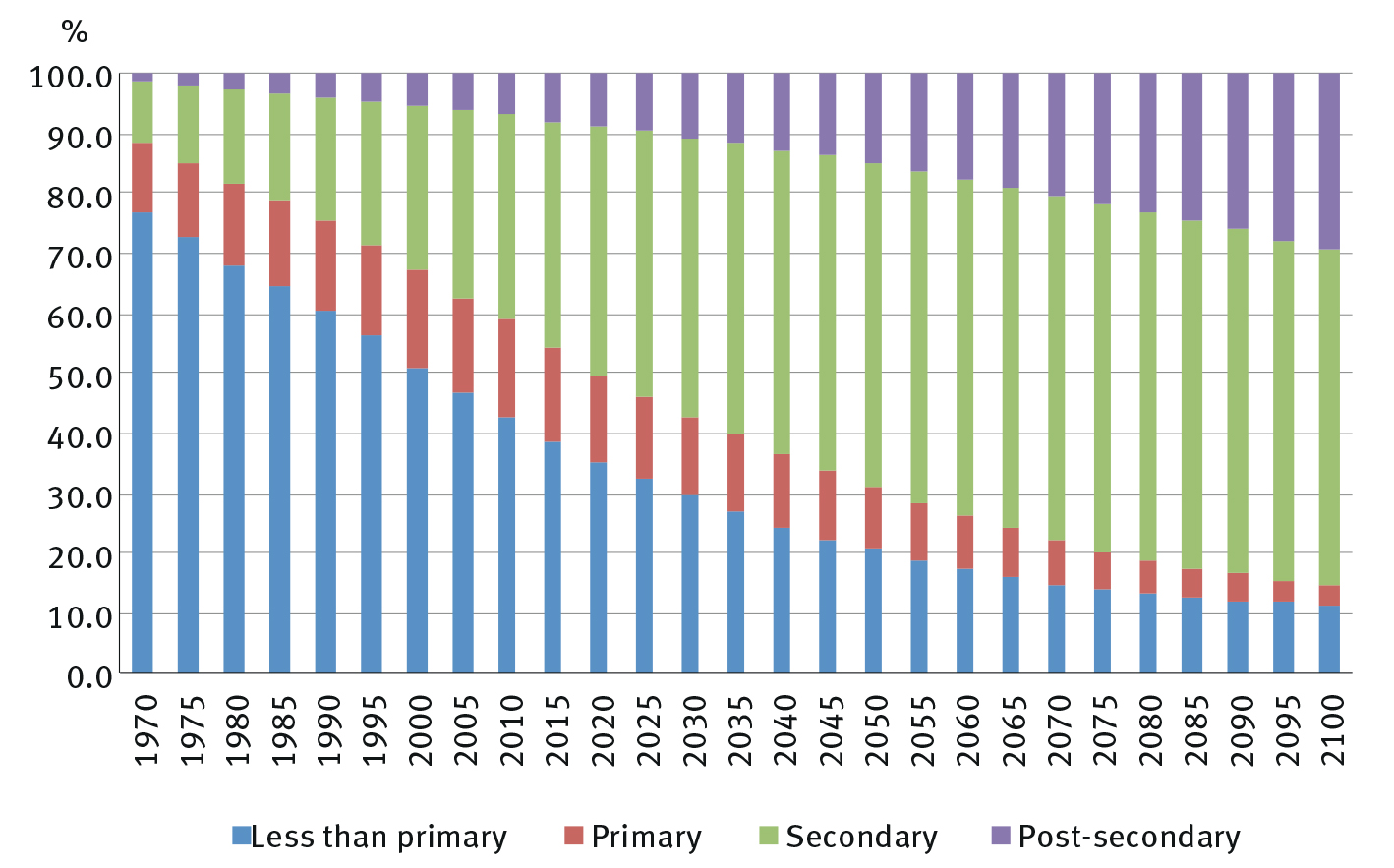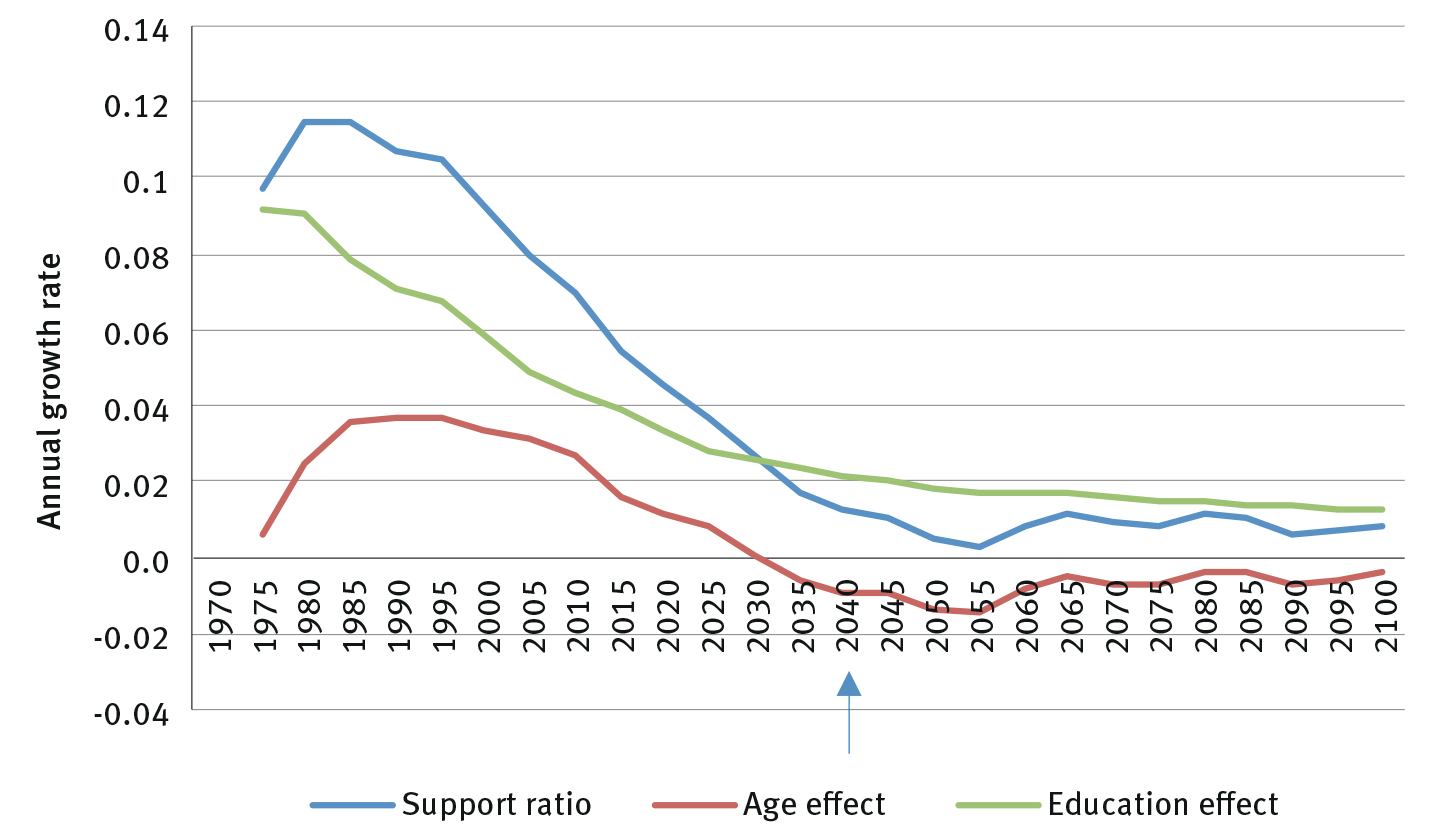Resumo
The demographic dividend has aroused interest among demographers and economists because it is seen as a window of oportunity for the economic development of countries that have experienced a demographic transition. There are reasons to question the sole virtuosity of the pure demographic dividend in economic growth. Crespo-Cuaresma et al. (2014)CRESPO-CUARESMA, J.; LUTZ, W.; SANDERSON, W. C. Is the demographic dividend an education dividend? Demography, v. 51, n. 1, p. 299-315, 2014. found that educational expansion has an important role in economic gains during the demographic dividend. To verify these results for the Brazilian case, we performed a decomposition exercise of economic support ratio (ESR), an alternative to demographic dependency ratio, to analyze the first demographic dividend. A simulation, applied for the period from 1970 to 2100 considering three scenarios of educational expansion, shows that educational expansion was and will be responsible for a big share of the economic gains of the Brazilian demographic dividend period, outperforming the change in age structure effect. In addition, an increase in a work-age population with post-secondary education appears to potentialize these results.
Key words
Demographic dividend; National Transfer Account (NTA); Education

 Thumbnail
Thumbnail
 Thumbnail
Thumbnail
 Thumbnail
Thumbnail
 Thumbnail
Thumbnail
 Thumbnail
Thumbnail
 Thumbnail
Thumbnail
 Thumbnail
Thumbnail
 Thumbnail
Thumbnail
 Thumbnail
Thumbnail
 Thumbnail
Thumbnail
 Thumbnail
Thumbnail
 Source: IBGE. Pesquisa de Orçamento Familiar (POF). Own elaboration.
Source: IBGE. Pesquisa de Orçamento Familiar (POF). Own elaboration.
 Source: IBGE. Pesquisa de Orçamento Familiar (POF). Own elaboration.
Source: IBGE. Pesquisa de Orçamento Familiar (POF). Own elaboration.
 Source: IBGE. Pesquisa de Orçamento Familiar (POF). Own elaboration. Note: One individual in the sample, aged between five and nine years of age, and 13 individuals between the ages of 10 and 14, state they have completed secondary education, while the normal age for completing this stage of education in Brazil is 17-18 years of age. These cases were not excluded in order to not compromise the representativeness of the sample analyzed.
Source: IBGE. Pesquisa de Orçamento Familiar (POF). Own elaboration. Note: One individual in the sample, aged between five and nine years of age, and 13 individuals between the ages of 10 and 14, state they have completed secondary education, while the normal age for completing this stage of education in Brazil is 17-18 years of age. These cases were not excluded in order to not compromise the representativeness of the sample analyzed.
 Source: IBGE. Pesquisa de Orçamento Familiar (POF). Own elaboration.
Source: IBGE. Pesquisa de Orçamento Familiar (POF). Own elaboration.
 Source:
Source:  Source:
Source:  Source:
Source:  Source:
Source:  Source: Own elaboration based on decomposition exercise.
Source: Own elaboration based on decomposition exercise.
 Source: Own elaboration based on decomposition exercise.
Source: Own elaboration based on decomposition exercise.
 Source: Own elaboration based on decomposition exercise.
Source: Own elaboration based on decomposition exercise.